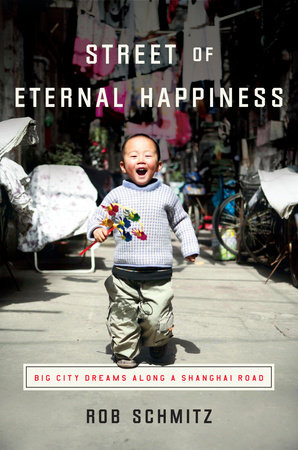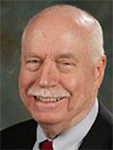The Volunteer Who Had His Book Banned by the Chinese Government — Rob Schmitz (China)
The following profile is drawn largely from a Peace Corps WorldWide article.
by Jeremiah Norris (Colombia 1963-65)
•

Bob Schmitz – photo: Julian de Hauteclocque Howe/NPR
Rob Schmitz, lived and worked in China from 1996 to 1998 as a Peace Corps Volunteer, first as a teacher, and later as a free-lance print and video journalist.
He joins other well-published Volunteers who served in China, e.g., Peter Hessler and Michael Meyer, as a living symbos as to why our government needed to sustain Peace Corps’ presence in China as it emerged into a global economic presence from a distant reality. Their combine out-put of award-winning books, literary awards, newspaper articles, radio and TV presentations — all had their creative starting points rooted in their China Peace Corps experiences.
In a contemporaneous manner, this provided Americans with a window — and most especially, a much-needed view into rural China. In a significant case, one of Rob’s books was in its 5th printing when the Chinese Government banned it. Those volunteers who have served in China and acquired a command of its language and culture, went on to bring back to America, in publications often unavailable in popular media sources, an understanding of its emerging role in our global society as the world’s largest and fastest-growing consumer market and second-largest importer of goods. Few in America would know that China is the wealthiest nation in the world, or that it has more billionaires than the US and India combined, or that according to the Gates and Richardson Foundations, China has long term leases on hundreds of thousands of hectares of arable farm land in Africa, and ships most of its produce back to the homeland. Or that via the China Investment Bank, it has funded major infrastructure projects in Africa, e.g., railroads, deep water ports, interstate roads, etc. Who knew!
Following his service as a Volunteer in China, Rob became NPR’s international correspondent based in Berlin. There he covered the human stories of a vast region reckoning with its past while it tries to guide the world toward a brighter future.
From his base in the heart of Europe, Rob has covered Germany’s levelheaded management of the Covid-19 pandemic, the rise of right-wing nationalist policies in Poland, and creeping Chinese government influence inside the Czech Republic. Prior to covering Europe, Rob provided award-winning coverage of China for a decade, reporting on the country’s economic rise and increasing global influence. His reporting on China’s impact beyond its borders took him to countries such as Kazakhstan, Mongolia, Vietnam, Thailand, Australia and New Zealand. Inside China, he interviewed elderly revolutionaries, young rappers, and live-streaming celebrity farmers who make up the diverse tapestry of one of the most fascinating countries on the planet.
 Rob is the author of the critically acclaimed book Street of Eternal Happiness: Big City Dreams Along a Shanghai Road [2016], a profile of individuals who live, work, and dream along a single street that runs through the heart of China’s largest city. The book won several awards and has been translated into half a dozen languages. This is the book that in 2018, the Chinese government banned after its fifth printing. The following year, it was selected as a finalist for the Ryszard Kapuscinski Award, Poland’s most prestigious literary prize.
Rob is the author of the critically acclaimed book Street of Eternal Happiness: Big City Dreams Along a Shanghai Road [2016], a profile of individuals who live, work, and dream along a single street that runs through the heart of China’s largest city. The book won several awards and has been translated into half a dozen languages. This is the book that in 2018, the Chinese government banned after its fifth printing. The following year, it was selected as a finalist for the Ryszard Kapuscinski Award, Poland’s most prestigious literary prize.
In addition to this prize, Rob has won numerous awards for his reporting on China, including two national Edward R. Murrow Awards, and an Education Writers Association Award. His work was also a finalist for the Investigative Reporters and Editors Award. His reporting in Japan, from the hardest hit areas near the failing Fukushima nuclear power plant following the earthquake and tsunami was included in the publication 100 Great Stories, celebrating the centennial of Columbia University’s School of Journalism. In 2012, Rob exposed the fabrications in Mike Daisey’s account of Apple’s supply chain on This American Life. His report was featured in the show’s “Retraction” episode. In 2011, New York’s Rubin Museum of Art screened a documentary that Rob had shot in the Tibetan regions of China about one of the last living Tibetans who had memorized “Gesar of Ling,” an epic poem that tells of Tibet’s ancient past.
From 2010 to 2016, Rob served as the China correspondent for American Public Media’s “Marketplace.” He worked also as a reporter for NPR member stations KQED, KPCC and MPR. Also, after his Peace Corps service, he lived in Spain for two years, speaks Mandarin and Spanish, has a bachelor’s degree from the University of Minnesota, and a MS degree from Columbia University’s Graduate School of Journalism.
Given that Rob has well-used his Volunteer time to bring China home to America, he most deservedly has earned a Profile in Citizenship.
•
 Following his tour in Colombia (1963-65)m Jeremiah Norris went to work on the Peace Corps Staff at PC/HQ. During the Administration of George H. W. Bush, he served in Department of State as Director of Human Resources/Bureau for Europe managing the U. S. Government response for health in the former states of the USSR. He then worked for the Hudson Institute in Washington D.C. as Director in Public Policy in the Center for Science .
Following his tour in Colombia (1963-65)m Jeremiah Norris went to work on the Peace Corps Staff at PC/HQ. During the Administration of George H. W. Bush, he served in Department of State as Director of Human Resources/Bureau for Europe managing the U. S. Government response for health in the former states of the USSR. He then worked for the Hudson Institute in Washington D.C. as Director in Public Policy in the Center for Science .
No comments yet.
Add your comment